In an era of rapid globalisation and ongoing advances in healthcare, it is increasingly vital for pharmacy students to engage in diverse learning experiences to stay at the forefront of innovation and change. To empower its Bachelor of Pharmacy (Hons) students with firsthand international experience, IMU has introduced the Global Exposure Fund to fully or partially support the direct costs associated with Semester 6 elective posting or Semester 7 research projects conducted overseas. Hence, 15 BP121 students were separated into two groups and conducted their elective programme at the Fudan University-affiliated Huashan Hospital and Zhongshan Hospital in Shanghai, China.
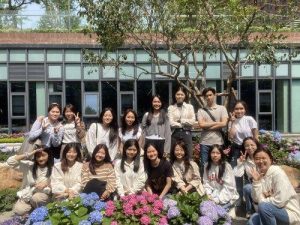
Fudan University-affiliated Zhongshan Hospital
5 IMU students were assigned to another affiliated hospital of Fudan University, Zhongshan Hospital. Supervisor, Dr Zhiping Jin, arranged for them to visit and learn in each department to be exposed to a maximum number of departments in the shortest time.
During the placement, students Lim Siang Han, Sean Yap, Chan Cheng Ying, Wong Wei Chyi, and Venus Lee went to the Clinical Pharmacy Department, and there were presentations given by professional clinical pharmacists who possessed extensive professional knowledge. The presentations include the clinical application of liposomal bupivacaine and whether new oral anticoagulants are as effective and safe as warfarin in cerebral venous thrombosis.
Dr Jin also introduced the students to the responsibilities of clinical pharmacists, who need to review different patient cases and provide recommendations for doctors on the rational use of medicines. They also got the opportunity to screen the patient’s pharmacotherapy review, diagnosis, laboratory findings, past medical and social histories, and the current medication the patient is taking. The students also got the chance to visit the patients in the ward for history taking and listen to their case presentations.
Chinese Medicine Department
In the Chinese Medicine Department, they discovered that China offers a Bachelor’s degree in Traditional Chinese Medicine Pharmacists, which is not available in Malaysia. In this department, all the Chinese medicinal herbs were neatly arranged on the shelves. All Chinese medicines are ordered from TCM factories by clinical physicians and packaged into small, pre-specified quantities, with a minimum of a seven-day supply.
Dr Wang also taught the students about various medication indications, such as Houttuynia cordata for cough and Chao Suan Zao Ren for insomnia. These insights allowed the students to explore new areas of knowledge about Traditional Chinese Medicine, broadening their horizons in this field.
Integrative Pharmacy
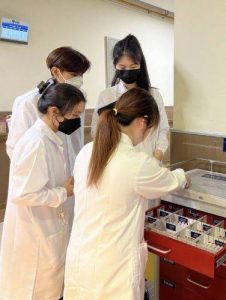
IMU students also went to the integrative pharmacy of Zhongshan Hospital. This department is responsible for the patients in the ward, including the surgical patients. Generally, integrative pharmacies are responsible for injectable medications, and they scan the QR code for verification, distribution, and transportation.
For the storage of narcotic and psychotropic drugs, two pharmacists will be responsible for the management. Besides, they will also need to check the expiry date of medicines in wards to ensure the efficacy of medicines. Under the pharmacist’s guidance, the students also went on-site to observe the inspection of the emergency medications rack.
Drug Clinical Trial Central Pharmacy
The drug clinical trial central pharmacy (GCP) is also one of the departments visited by the 5 students. Dr Ying Jiang introduced the work of pharmacists there, which includes receiving, accepting, storing, managing, and distributing the medicines that will be used in clinical trials. Generally, they will only keep contact with the authorized person for a particular project instead of the patients in the hospital.
From the pharmacist’s descriptions, the students understood that these seemingly simple tasks require a considerable amount of time and effort, gaining a deeper appreciation for the complexity of the work involved. The students had the task of inputting drug codes, which seemed simple at first. However, during the process, the students realized that careful and accurate registration of drug codes was not as easy as it appeared.
Medication Compounding Department
IMU students also visited the Medication Compounding Department, which is located near the Sheshan branch hospital. Dr Yao and his assistants provided a comprehensive introduction and overview of their working procedures to the students They also showcased samples of their production, including topical liquids, ointments, and solid medications for Zhongshan Hospital. Besides, they guided the students through the entire facility, explaining each step of the process. This visit left a profound impression on the students regarding China’s pharmaceutical system.
The students also had the opportunity to explore new knowledge about the production of Traditional Chinese Medicine, which they had not encountered before. Dr Yao had assigned tasks to help the students better understand the department, including visual inspection of medicated creams and labeling medication information. Additionally, the students had the chance to exchange insights into pharmaceutical and hospital systems between Malaysia and China, enriching their educational experience.
Pharmacy Intravenous Admixture Services Department
Besides, they were also given the opportunity to visit the pharmacy intravenous admixture services (PIVAS) department which is located in Zhongshan Hospital. PIVAS is a medical department that provides specialized technical services for the centralized compounding of intravenous medications for patients, which combines clinical pharmacy with scientific research adhering to international standards and Good Manufacturing Practice (GMP) guidelines.
Within a sterile operating environment, trained, licensed pharmacists in the PIVAS department prepare intravenous drug mixtures following established procedures. Their work encompasses the review of intravenous medication prescriptions, preparation of cytotoxic chemotherapy drugs, total parenteral nutrition (TPN), general medications, and antibiotics. The implementation of PIVAS can greatly enhance the rational use of drugs and infusion safety and minimize occupational exposure among healthcare workers. Moreover, the benefits of PIVAS also include cost savings by minimizing the probability of medication preparation errors.
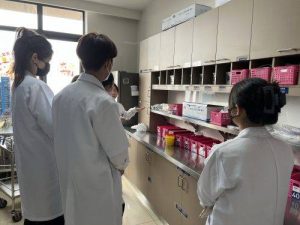
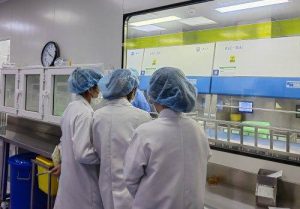
After completing the whole programme in Shanghai, China, all 15 students were honored with certificates presented by the President of Fudan University. The students expressed their reflections on the experience, shared the knowledge they gained during this period, and conveyed deep gratitude to Fudan University for providing this opportunity for exchange. These experiences acquired through this placement are believed to become an unforgettable memory for all students and will serve as a driving force for their future success.
Realted article: IMU Pharmacy Students’ Unforgettable Elective Posting Experience at Fudan University-affiliated Huashan Hospital
Participants
Lim Siang Han
Chan Cheng Ying
Sean Yap Wen Xuan
Wong Wei Chyi
Law Kah Xin
Gan Hui Xuen
Christy Yong Yee Ung
Khoo Xin Yee
Venus Lee Sing Yee
Aimee Ng Mei Li
Chong Jia Yi
Christina Lee Ying Ying
Gan Sin Yee
Eunice Lim Yu Xuan
Yap Rou Xin

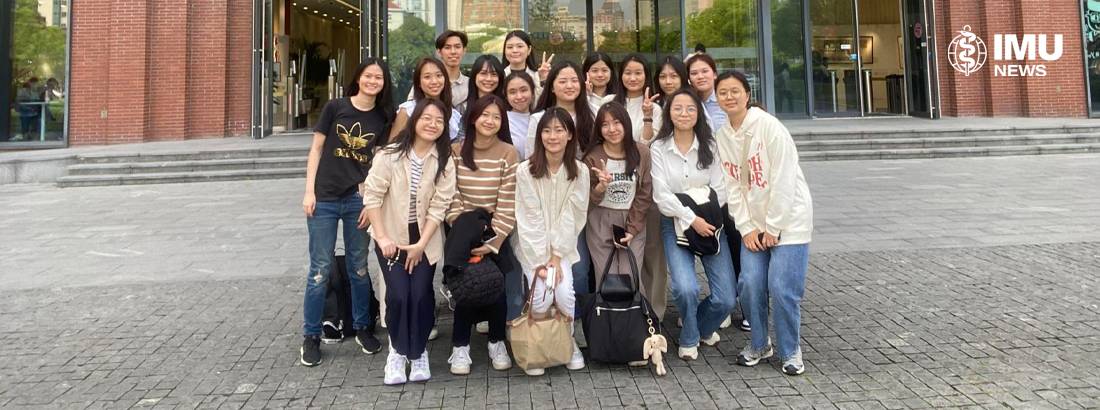

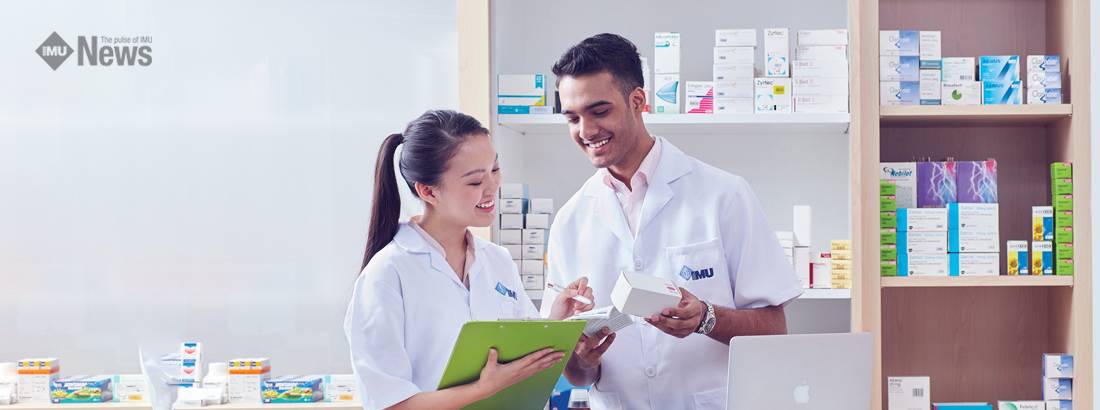
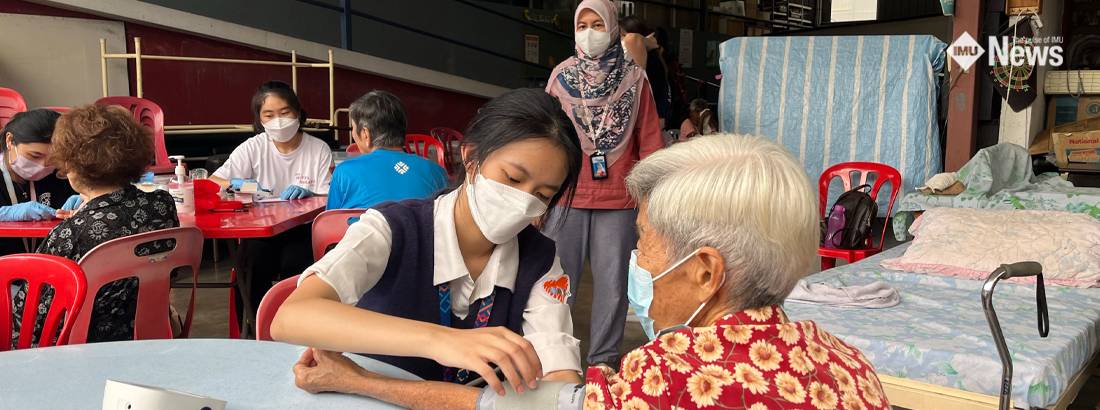
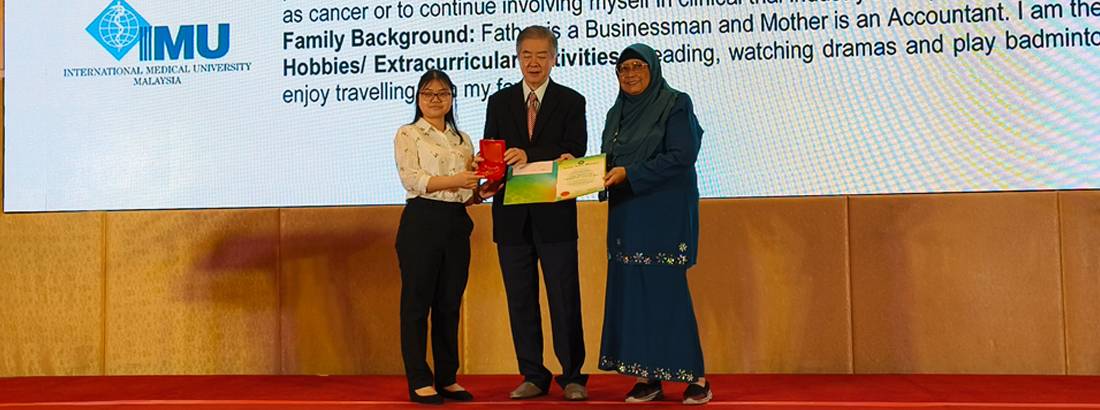
No approved comments.